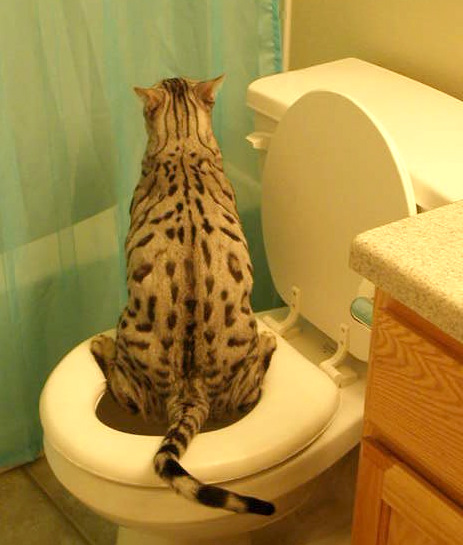Dangers of Disposing Cat Poop in Your Toilet - Precautionary Measures
Dangers of Disposing Cat Poop in Your Toilet - Precautionary Measures
Blog Article
Were you trying to locate selective information on Don’t flush cat feces down the toilet?

Intro
As feline owners, it's vital to bear in mind exactly how we get rid of our feline pals' waste. While it may appear practical to purge feline poop down the toilet, this technique can have damaging consequences for both the setting and human health.
Alternatives to Flushing
The good news is, there are much safer and extra accountable means to get rid of cat poop. Think about the complying with choices:
1. Scoop and Dispose in Trash
One of the most common method of throwing away pet cat poop is to scoop it right into a naturally degradable bag and throw it in the garbage. Make sure to make use of a devoted trash scoop and take care of the waste immediately.
2. Usage Biodegradable Litter
Opt for biodegradable feline litter made from materials such as corn or wheat. These clutters are eco-friendly and can be safely gotten rid of in the garbage.
3. Hide in the Yard
If you have a backyard, take into consideration hiding pet cat waste in a designated area far from veggie yards and water resources. Make certain to dig deep adequate to stop contamination of groundwater.
4. Mount a Pet Waste Disposal System
Purchase a family pet waste disposal system specifically designed for pet cat waste. These systems make use of enzymes to break down the waste, minimizing odor and environmental influence.
Health and wellness Risks
In addition to ecological worries, flushing pet cat waste can likewise pose wellness risks to human beings. Feline feces might include Toxoplasma gondii, a bloodsucker that can trigger toxoplasmosis-- a possibly severe ailment, particularly for expectant women and people with damaged immune systems.
Environmental Impact
Flushing cat poop introduces hazardous microorganisms and parasites into the supply of water, positioning a considerable danger to aquatic communities. These contaminants can negatively impact aquatic life and concession water high quality.
Conclusion
Responsible pet dog possession prolongs beyond giving food and sanctuary-- it likewise involves correct waste management. By avoiding flushing feline poop down the commode and opting for alternate disposal methods, we can minimize our ecological footprint and shield human wellness.
Why You Should Never Flush Cat Poop Down the Toilet
A rose by any other name might smell as sweet, but not all poop is created equal. Toilets, and our sewage systems, are designed for human excrement, not animal waste. It might seem like it couldn’t hurt to toss cat feces into the loo, but it’s not a good idea to flush cat poop in the toilet.
First and foremost, assuming your cat uses a litter box, any waste is going to have litter on it. And even the smallest amount of litter can wreak havoc on plumbing.
Over time, small amounts build up, filling up your septic system. Most litter sold today is clumping; it is made from a type of clay that hardens when it gets wet. Ever tried to scrape old clumps from the bottom of a litter box? You know just how cement-hard it can get!
Now imagine just a small clump of that stuck in your pipes. A simple de-clogger like Drano isn’t going to cut it. And that means it’s going to cost you big time to fix it.
Parasitic Contamination
Believe it or not, your healthy kitty may be harboring a nasty parasite. Only cats excrete Toxoplasma in their feces. Yet it rarely causes serious health issues in the cats that are infected. Most people will be fine too if infected. Only pregnant women and people with compromised immune systems are at risk. (If you’ve ever heard how women who are expecting are excused from litter cleaning duty, Toxoplasma is why.)
But other animals may have a problem if infected with the parasite. And human water treatment systems aren’t designed to handle it. As a result, the systems don’t remove the parasite before discharging wastewater into local waterways. Fish, shellfish, and other marine life — otters in particular — are susceptible to toxoplasma. If exposed, most will end up with brain damage and many will die.
Depending on the species of fish, they may end up on someone’s fish hook and, ultimately on someone’s dinner plate. If that someone has a chronic illness, they’re at risk.
Skip the Toilet Training
We know there are folks out there who like to toilet train their cats. And we give them props, it takes a lot of work. But thanks to the toxoplasma, it’s not a good idea.

As a reader on How to Dispose of Cat Poop and Litter Without Plastic Bags, I assumed sharing that chunk was really useful. Sharing is good. One never knows, you may just be helping someone out. Many thanks for your time. Visit again soon.
Schedule Here Report this page